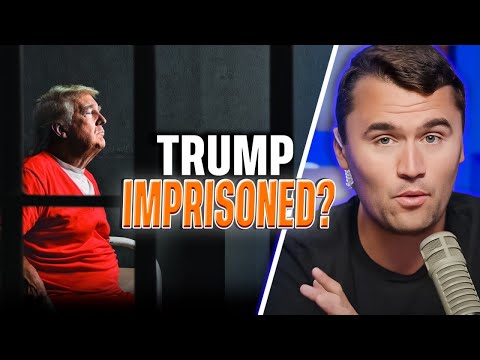### The Great Legal Tug-of-War: President Trump’s Fight Against the System
In an unprecedented move, the political scene is buzzing with discussions surrounding the legal battles involving former President Trump and the controversial judge handling his case, Juan Maran. Courtroom dramas often play out like episodes of a soap opera, but this one has taken a turn that raises eyebrows and stirs fervent emotions. The crux of the situation revolves around the concept of presidential immunity, a legal safeguard that asserts that current presidents cannot be prosecuted for their official acts. Recent actions by Judge Maran have ignited concerns about the integrity of this legal principle and the very underpinnings of the American judicial system.
The recent Supreme Court ruling confirmed that any sitting president—yes, that means every incumbent in the history of this great nation—is shielded from criminal prosecution pertaining to their official duties. Despite this clear guideline, it appears that certain officials, particularly the New York City District Attorney Alvin Bragg and Judge Maran, are prepared to take a different route. They seemingly disregard the high court’s ruling, showcasing a willingness to thrust the legal system into chaotic waters. This puts not only Trump under the specter of legal battles but casts a shadow over the sanctity of the presidency itself.
Judge Maran’s approval of testimony related to Trump’s presidency raises red flags for many. Critics argue that bringing such evidence into the courtroom goes against the spirit and letter of the Supreme Court’s protection for presidential actions. The talks of a mistrial swirl around, suggesting that the judge’s impartiality might be compromised. Some even point fingers at potential conflicts of interest tied to Maran’s family connections to Democratic political circles. To the casual observer, it sounds like something straight out of a political thriller—only this is real life, albeit one filled with questionable motives and politically motivated decisions.
The stakes are exceedingly high here. With President Trump potentially facing legal repercussions during his next four-year term, it’s easy to see how this situation could become a constitutional crisis. If the judicial system allows a sitting president to be held at the mercy of local prosecutors and judges with political agendas, it raises profound questions about justice and governance. Picture a scenario where Trump might have to tiptoe around the whims of a prosecutor while trying to lead a country—a nation can’t be run like that, no matter how much popcorn one has for the show!
Conservative pundits are adamant that repercussions are in order for Maran and those involved in this burgeoning saga. The narrative leans towards a call-to-arms for legal accountability against what some claim to be a politically charged conspiracy—a conspiracy against rights, no less, as dressed up under statutes like 18 USC section 241. With calls for Grand Jury investigations into the behaviors of local prosecutors, an air of urgency pervades the discourse: Justice has to be served, and soon. After all, fairness must prevail in a court that many view as already sidelined by partisanship.
In the mightiest of showdowns, both sides appear poised and ready. With a fresh cohort potentially rising to play key roles in the Department of Justice—names such as Pam Bondi and Todd Blanche—there is an optimism within conservative circles. It may seem like political theater, but the implications are significant. How a new administration navigates this treacherous landscape could very well set a precedent that shapes the future of American governance. As discussions continue and the political gears grind ceaselessly, all eyes will be on the judicial stage to see whether constitutional safeguards will remain intact or whether we will witness a stark rebuke of democracy in action.



